Recovery fuels inflation concerns
There has been a lot of positive economic data circulating over recent days.
The pound touched a three-year high as reports showed that British manufacturing grew at its fastest rate in almost 30 years, while house prices have risen at their fastest pace for almost seven years.
Alongside this, we have seen far less volatility in the markets than was the case a few months ago with increasing confidence in the UK’s roadmap out of the Coronavirus pandemic.
Over in the United States, it’s a similar story with consumer prices jumping by 4.2% in the year to April – the biggest increase in almost 13 years.
Other stories to emerge include Travis Perkins, the UK’s biggest builders’ merchant, raising the price of some of its products by between 5 and 15%, while many restaurants have also been increasing the cost of eating out as one of the worst-hit sectors seeks to recover lost ground.
All of which inevitably leads to concerns that we may be heading for a period of higher inflation.
Only time will tell, but my instinct and that of many other commentators is that there may well be a steady increase in inflation over the next 18 months or so as we continue to emerge from this most extraordinary period in all of our lives.
But any upcoming inflation is likely to be temporary and there should not be a need to use interest rates to control any upward pressures.
The Bank of England view is that inflationary pressure may prove lower than some may expect with the strong possibility that the economy will cool after the initial post-lockdown surge in spending.
Of course, for some investors, inflation can have benefits, particularly for holders of assets including houses and some commodities such as gold.
We are currently reflecting some of the changing economic and financial circumstances in our client portfolio review letters.
While we are pleased with how well portfolios have held up, we are also signposting that there may be a need to consider a few different options to ensure that our clients are best able to mitigate any inflationary challenges and threat of rising interest rates.
As chartered financial advisers, you would expect us to track closely the ebbs and flows of the financial markets and to try to read the road ahead.
But our responsibility to our clients is to ensure that they have the strongest, most robust, long-term and diversified plan which will, over a period of time, enable them to achieve or exceed their financial objectives.


